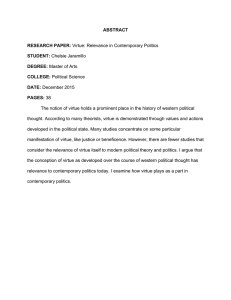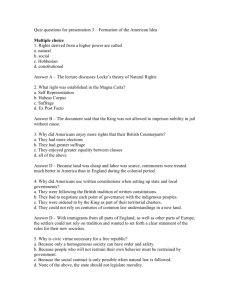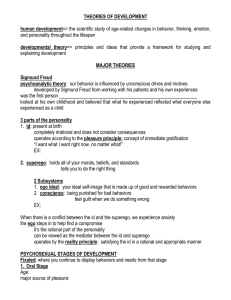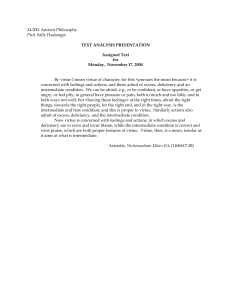Erik Erikson and Life Cycle
advertisement
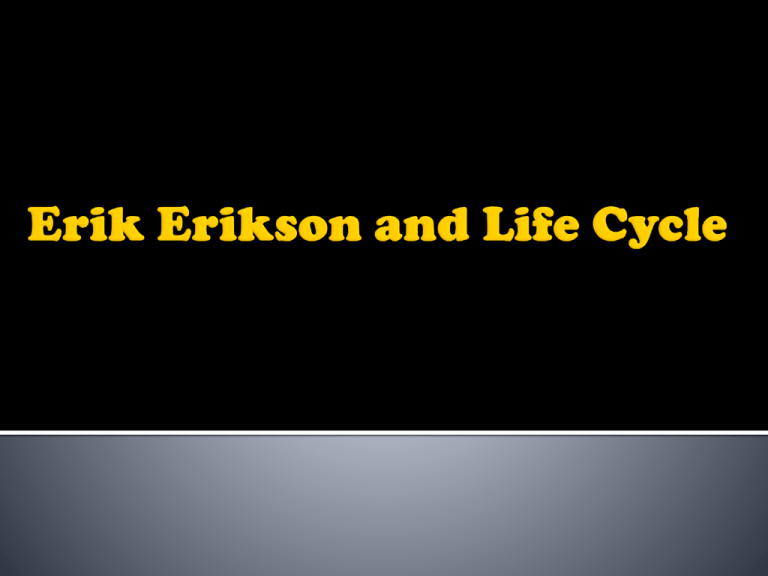
Born in June 15, 1902. A Danish mother and German father. Raised as a Jew, married a Christian and converted to Christianity. At 18, he graduated from a classical gymnasium. He studied Latin, Greek, German Literature and Ancient History. In 1927, got training from Anna Freud on psychoanalysis. Married to Joan in 1929, who became her research partner. In 1933, he became the full member of Vienna Psychoanalytical Society. Joined Yale Medical School in 1936. Studied psychological symptoms, including the lack of self-image or identity, that were related to a sense of loss of cultural tradition. Continued Research on Development stages of Life, since 1940. He studied the lives of Martin Luther and Mahatma Gandhi of India. Passed away in 1997. Named by Erikson, Epigenesis (epi means upon and genesis means emergence) was the first psychological theory to detail the human life cycle, from infancy to adulthood and old age; Epigenesis suggests that each element develops on top of other parts. Age: 0 to 1 year old Psychosocial Crisis: Trust vs. Mistrust Virtue: Hope Corresponds to Freud's oral stage centers around the infant's basic needs being met by the parents. Primary Caregivers give trust or mistrust Age: Toddlers, 2 to 3 years Main Question: "Can I do things myself or must I always rely on others?" Virtue: Will As the child gains control over eliminative functions and motor abilities, they begin to explore their surroundings. Age : Preschool, 4 to 6 years Main Question: "Am I good or am I bad?" Virtue: Purpose Related Elements in Society: ideal prototypes/roles The child is learning to master the world around him or her. Guilt is a new emotion and is confusing to the child. Age : Childhood, 7 to 12 years. Main Question: "Am I successful or worthless?" Virtue: Competence Related Elements in Society: division of labor Erikson viewed the elementary school years as critical for the development of selfconfidence. Age : Adolescents, 13 to 19 years. Main Question: "Who am I and where am I going?" Ego quality: Fidelity Related Elements in Society: Ideology Child develops a sense of sexual identity. Sometimes the roles becomes confusing. Age : Young Adults, 20 to 34 years. Main Question: "Am I loved and wanted?" or "Shall I share my life with someone or live alone?" Ego quality: Love Related Elements in Society: patterns of cooperation (often marriage) Age : Middle Adulthood, 35 to 65 years. Main Question: "Will I produce something of real value?" Virtue: Care Related Elements in Society: parenting, educating, or other productive social involvement Age : Seniors, 65 years onwards. Main Question: "Have I lived a full life?" Virtue: Wisdom
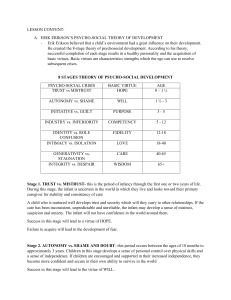

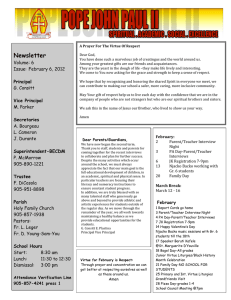
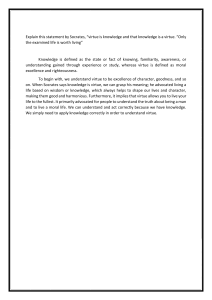

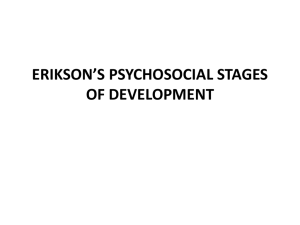
![Erikson's Stages of Psychosocial Development [PPT]](http://s3.studylib.net/store/data/009751159_1-0172a620c7b464562e5ad910610924d1-300x300.png)
